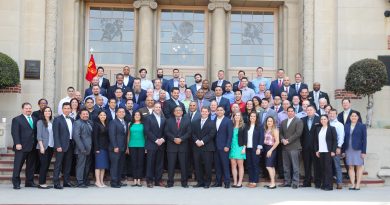Simple Guidance For You In Business Travel: Worrying Only About Terrorism Could Kill
Schneier also explains some prejudices regarding the perception of risk:
Humans tend to exaggerate and dramatize truly rare risks, minimizing common risks
What could most likely kill on a trip?
The US State Department maintains a register of American citizens who died overseas with data on the causes of death and the location of the event. Secure Transportation El Salvador The result could surprise, in fact, between 2002 and 2016, compared to 99 deaths due to terrorist attacks, 3500 were caused by road accidents and 213 by pedestrian investments.
The unknown is perceived to be more risky than the familiar
Travelers who regularly frequent the same location, in the long run lose the perception of the Ets riskmanagement that surround them, especially if they have not been directly affected. This situation is known as the “boiled frog syndrome” and precisely an experiment that explains this concept even if the idea is somewhat macabre. executive protection services turkey In summary, if you place a frog in boiling water it will immediately pop out while if you immerse it in cold water and gradually heat it, the frog will gradually get used to the temperature without realizing in due time that boiling will kill it.
This form of neglect in some travelers leads to a decrease in travel safety and increases the chances of becoming victims of a crime or ignoring an increase in risks. If our perception of security equates to reality, we are able to reach better compromises. To enhance personal safety, it is important for a traveler to understand the essence of these two prejudices.
“If it’s news reported by the media don’t worry as by definition it’s something that hardly happens” says Bruce Schneier. The solution, therefore, is to know the risks and obtain the “reality of the facts”. To begin a search on the place to visit is a must. What are the main risks and dangers in the country and city you will visit?
Crime, natural disasters, health problems and political instability are important factors to take into account. It is also essential to consider specific problems such as the use of drugs to commit sexual violence in well-known tourist locations or the increase in robberies and attacks on foreign tourists.
Another great source of information is represented by interactive commercial sites with pages dedicated to advice for travelers, chats and blogs. The LonelyPlanet site is a very valuable resource on a par with platforms like ExploreSecure via Twitter. You can learn a lot from the mistakes and experiences of others.
Yes, terrorism is a risk and certainly not to be discarded but the possibility of falling victim to an attack is statistically very low. Worrying only about the risks associated with terrorism leads to ignoring concrete threats, increasing the risk of becoming a victim of circumstances.
The looming shadow of terrorism hovers over the whole of Europe. The recent suicide attack at a music concert in Manchester, UK; pedestrian hit London two months earlier and violent attacks in Paris and Berlin populated news and media, increasing tension among the population. These acts of extreme violence and contempt for human life are perpetrated by individuals willing to make the ultimate sacrifice in order to carry out their plans. The thought of being victims of a terrorist attack is frightening but in reality what are the chances of this happening? The simplest answer: very small. Concern about terrorism can make us lose sight of more substantial and immediate threats to the point of increasing the risks.
Business travelers sometimes suffer irrational fears and feel a sense of insecurity despite not being right and conversely, they feel safe abroad in places that are in fact far from safe. A significant percentage of travelers, focusing on fear of terrorism unknowingly expose themselves to risks that statistically cause death and injury with extreme ease.
“Security is represented by two divergent aspects: perception and reality. You can feel safe even if you are not and you can be safe without feeling it, ”says security engineer Bruce Schneier.



